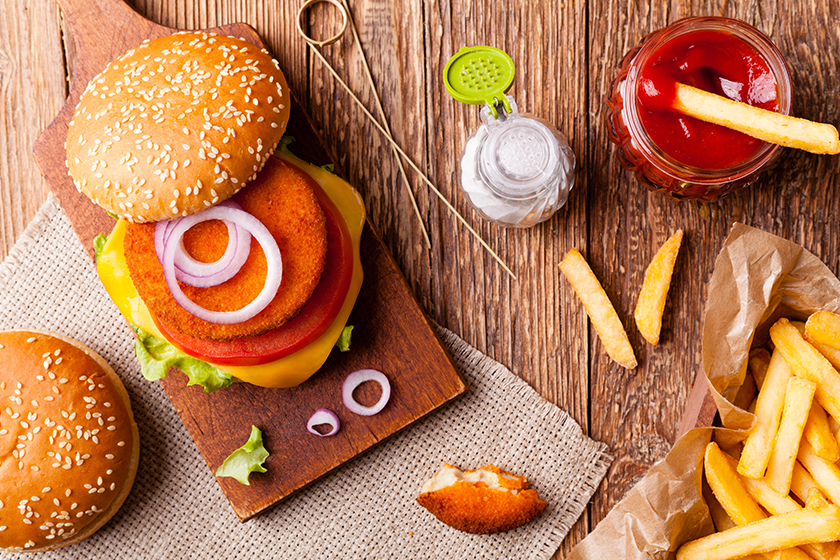6 Foods That Are Hard To Digest As You Get Older

As people age, the digestive system can become less efficient, making certain foods harder to process. Whether it is for yourself or a family member, understanding which foods to limit or avoid can help prevent discomfort and bloating. Below are six common foods that become difficult to digest as you get older.
Dairy Products
Lactose intolerance becomes more prevalent in older adults, leading to difficulties digesting milk, cheese, and other dairy products. This is because the body produces less lactase, the enzyme needed to break down lactose, as you age. If you experience bloating or gas after consuming dairy, it might be time to switch to lactose-free alternatives.
Consider options like almond milk or lactose-free cheese, which can be gentler on the digestive system. You can also incorporate probiotic-rich foods such as yogurt, which may aid in digestion.
Fried Foods
Fried and greasy foods can overwhelm the digestive system, especially in older adults. The high fat content slows digestion, leading to discomforts such as indigestion or acid reflux. Foods like fries, fried chicken, and doughnuts are particularly tough on the stomach.
To reduce the impact of fatty foods on digestion, consider opting for baked or grilled versions of your favorite dishes. This way, you can enjoy the taste without compromising digestive health.
Spicy Foods
Spices may have added excitement to your meals in the past, but they can become more difficult to tolerate with age. The capsaicin found in spicy foods can irritate the stomach lining, causing heartburn or acid reflux, especially in older adults.
If you still enjoy flavor but want to avoid digestive upset, try using milder seasonings such as herbs, garlic, or a dash of lemon juice. These can enhance your meals without the unwanted side effects.
Legumes
Beans, lentils, and other legumes are nutritious but can be challenging to digest as you get older. The fiber in these foods can lead to gas and bloating, especially when consumed in large amounts. Even though fiber is needed, legumes may need to be introduced in smaller portions for more manageable digestion.
Soaking or thoroughly cooking legumes can make them easier on your digestive system. You may also want to try low-fiber alternatives like zucchini or spinach for the same nutritional benefits without the discomfort.
Processed Foods
Highly processed foods such as packaged snacks, frozen dinners, and deli meats are loaded with preservatives, artificial ingredients, and high amounts of sodium. These additives are not only hard to digest but can also lead to other health issues like high blood pressure.
Instead of relying on processed foods, aim for whole, fresh options like fruits, vegetables, and lean proteins. These natural alternatives provide nutrients and are far easier for your body to digest.
Caffeine
As you age, your body metabolizes caffeine more slowly, which means that coffee, tea, and energy drinks can linger in the system longer. This can lead to digestive issues such as acid reflux and exacerbate problems like insomnia. According to the Mayo Clinic, excessive caffeine intake can irritate the gastrointestinal tract, leading to discomfort in older adults.
Cutting back on caffeine and switching to herbal teas or decaffeinated options can reduce these issues. Drinking plenty of water throughout the day can also support overall digestive health.
Managing Your Diet for Better Digestion
As you or your family members age, it is important to pay attention to how food affects digestion. Cutting back on or modifying these six foods can significantly reduce digestive discomfort. Small dietary adjustments can make a big difference, promoting overall health and comfort.
By opting for easier-to-digest alternatives, staying hydrated, and incorporating regular physical activity, you can maintain a healthier digestive system well into the later years.
